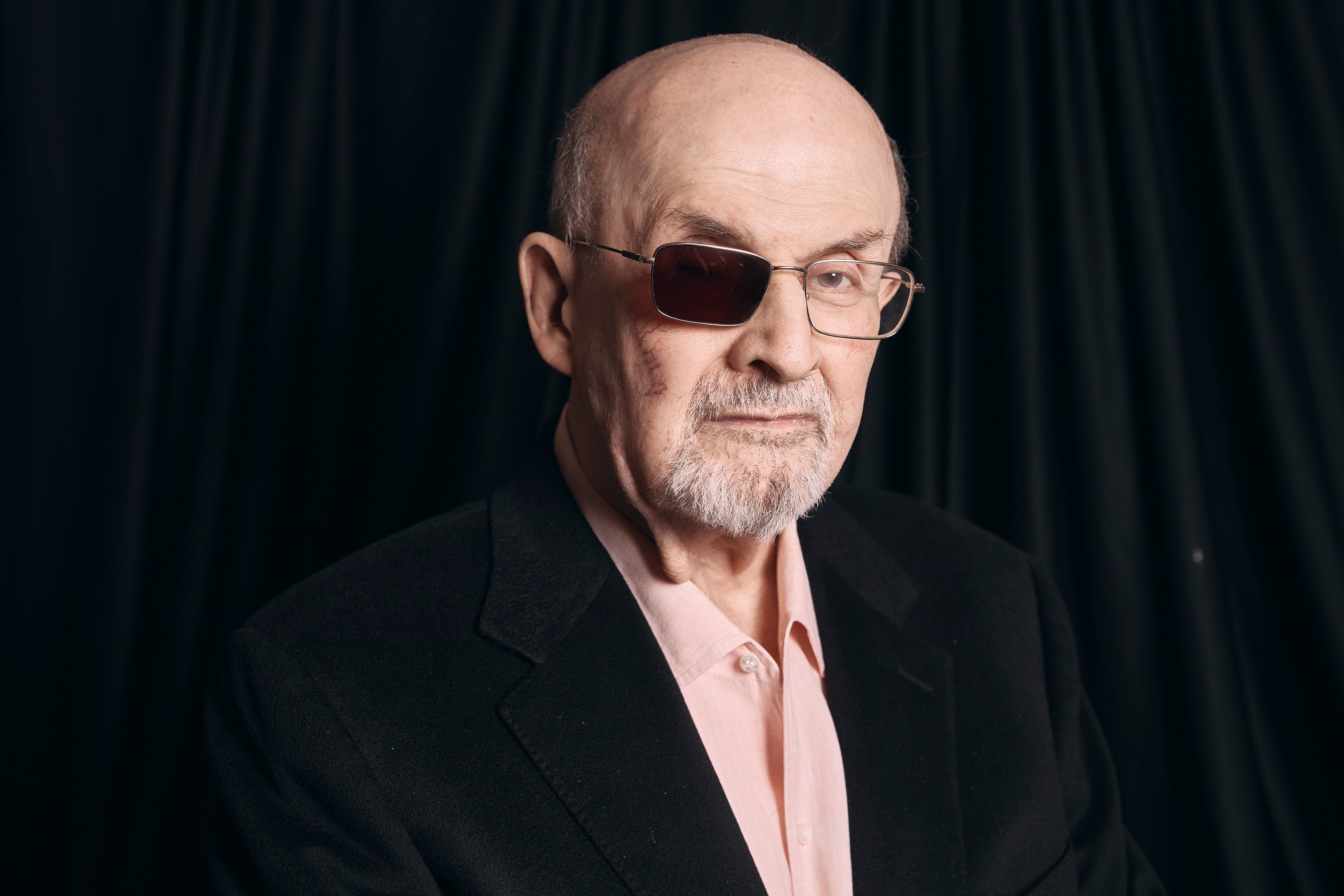Salman Rushdie has ‘spoken’ with attacker who stabbed him using AI software
‘A writer’s instinct is to try and make sense of events,’ author said
Your support helps us to tell the story
This election is still a dead heat, according to most polls. In a fight with such wafer-thin margins, we need reporters on the ground talking to the people Trump and Harris are courting. Your support allows us to keep sending journalists to the story.
The Independent is trusted by 27 million Americans from across the entire political spectrum every month. Unlike many other quality news outlets, we choose not to lock you out of our reporting and analysis with paywalls. But quality journalism must still be paid for.
Help us keep bring these critical stories to light. Your support makes all the difference.
Salman Rushdie has spoken with a digitally generated version of the man who stabbed him in a new BBC documentary about the attack.
The Indian-born British-American author, 76, narrowly avoided death but lost sight in his right eye among other life-changing injuries after he was repeatedly stabbed on stage at the Chautauqua Institution in New York state in August 2022.
In BBC2’s Through A Glass Darkly, Rushdie has an AI imagined conversation with his attacker, Hadi Matar, who is currently in custody for the author’s attempted murder.
Rushdie had written dialogue for Matar, which was plugged into AI software and combined with a CGI avatar to create the conversation.
Matar’s dialogue is also included in Rushdie’s new memoir, Knife: Meditations After An Attempted Murder, which was released last month.
The Satanic Verses author told the BBC documentary he was inspired to write dialogue for his attacker in order to “imagine the cast of mind which would be willing to drive a blade into an old man’s neck.”
Rushdie said he wanted to ask his attacker “why?” he had stabbed him but knew “that’s never going to happen” because his lawyer “wouldn’t allow” the meeting to happen.

“Use your skill,” the author says he then thought. “My skill is imagination. Imagine yourself into his head. I’ve had that conversation with him in my head for a year and a half now.”
He added: “A writer’s instinct is to try and make sense of events, and this didn’t seem to really make sense.”
After Matar stabbed Rushdie more than a dozen times, he told the New York Post he’d committed the act of violence because he thought Rushdie was “disingenuous”.
In the AI generated conversation, Rushdie asks Matar what he meant by this comment, to which he replies: “It means you pretend to be telling the truth when you’re not.”
Elsewhere in the imagined dialogue, Matar claims Rushdie is a “devil” who has to be destroyed. “I was ignorant. I was asleep.,” he says. “Now I’m awake. God woke me up.”
Speaking of the moment Matar stabbed him in the BBC documentary, Rushdie revealed he had always wondered “if somebody was going to jump out of an audience one day”.
Of the attack’s aftermath, he added: “I heard voices saying I needed my clothes to be cut off me so they could see where the wounds were. I found myself articulating that my house keys were in that pocket. And I heard somebody say, ‘What does it matter?’

“But, in retrospect, what it says to me is that there was some bit of me that was not intending to die, some bit of me that said ‘I’m going to need those house keys’.”
Last month, the author discussed surviving the attempt on his life at an event for his book that explores the harrowing experience. Sir Salman described the memoir as a device to give him back the power over his own life.
“What it did do, I feel, is it gave me back control of the narrative,” he said of the writing experience.
“So, instead of being a man lying on stage in a pool of blood, I’m a man writing a book about a man lying on the stage of the pool and that felt like [it] gave me back the power… [because it is now] my story that I’m telling in my way and that felt good.
“The power literature has is the power to describe events in a way that the books then own those events.”
